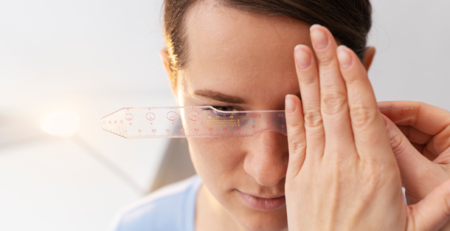The Evolving Role Of A Psychotherapist In Modern Mental Healthcare
The role of a psychotherapist in the ever-changing scene of mental healthcare has changed radically. Psychotherapist is changing his/her practices as societal attitudes towards mental health evolve along with new findings on how the brain works. The article highlights the changing role of psychotherapists within a current mental health care framework as well as identifies the main changes and associated issues faced by them.
From Stigma to Acceptance:
The last change is decreased negative public perception around seeking mental health support. Psychotherapists have increasingly become responsible for helping individuals feel that they can safely seek assistance as our societies are becoming more receptive to the needy. This change in preferences for health care management demands a reengineering of modern methods used by therapists so that they keep pace with the demands of people from various backgrounds.
Integration of Technology:
Psychotherapist use current technological advancements to improve the output of their efforts in modern day and age. With teletherapy, also known as online therapy, clients can now easily get mental health services anytime they want. Thanks to virtual platforms, geographic location does not limit therapists from communicating with their clients and reaching a broader clientele base in the process. Nevertheless, the use of technology comes with privacy concerns as well as the building of a robust therapeutic alliance in cyberspace among other challenges.
Evidence-Based Practices:
The emphasis on evidence-based practice within the field of psychotherapy has increased over time. As a result, therapists are now using scientifically proven strategies in order to make sure that their interventions are effective. There has been an increasing realization that mental health services delivery should be result-oriented and transparent. Psychotherapists, therefore, should continually read journals and adopt an evidence-based approach in the treatment frameworks they use.
Cultural Competence and Diversity:
Diversity recognition and acknowledgment are now considered key pillars for mental health care in today’s world. Currently, psychotherapists must have cultural competency with regard to the different ideas and needs held by their clients within the respective ethnic groups. This includes identifying cultural influences in mental issues, developing culturally appropriate interventions for psychological therapy as well as ensuring inclusiveness and sensitivity to diverse ethnicities. There is a need for continuous involvement in the creation of equal and fair therapeutic grounds by psychotherapists.
Collaboration with Other Healthcare Professionals:
That is why incorporating mental health in general healthcare system is an important milestone in contemporary healthcare. With psychotherapists working together with doctors, nurses, and others in a team approach for more effective and combined care. This collaborative approach acknowledges that mental health is closely related to physical health and therefore targets not symptoms but a whole person. The focus on this trend shows the need for an interdisciplinary perspective in healthcare.
Preventive Mental Healthcare:
Mental healthcare has moved away from a reactive towards a proactive approach. Instead of dealing with current mental issues, psychotherapists also make significant contributions towards preventive measures. This entails helping people create coping skills and boost resilience in order to keep mentally healthy. Psychotherapists who pay attention to prevention help decrease the load on psychiatric care and promote a society with sound psychological health.
Mind-Body Approaches:
Mental healthcare and the mind-body connection. Holistic approaches, recognizing a continuum of mind/body wellness, are being employed by psychotherapists. This approach involves incorporating approaches like mindfulness, meditation, and yoga in assisting patients develop healthier mind-body relationships. This is emblematic of a wider recognition that mental well-being can extend beyond solely talk therapies.
Conclusion:
Finally, a psychotherapists functions in contemporary mental health are quite intricate and variable. Psychotherapists are leading the way when it comes to transformations in mental health care including eliminating prejudice and adopting technology, promoting cultural competencies in practice and working together with other health care providers. However, as the area progresses, psychotherapists may encounter fresh difficulties and chances, which necessitates constant flexibility, and supplying empathetic and efficacious therapy amidst an ever-changing psychological scenario.












Leave a Reply